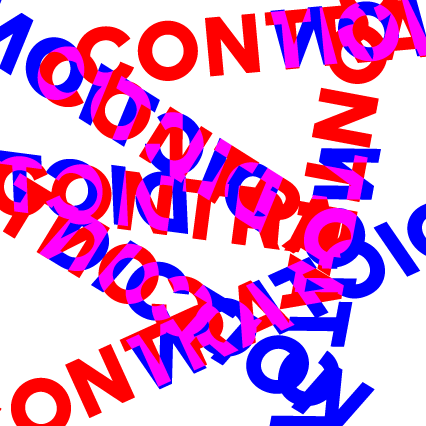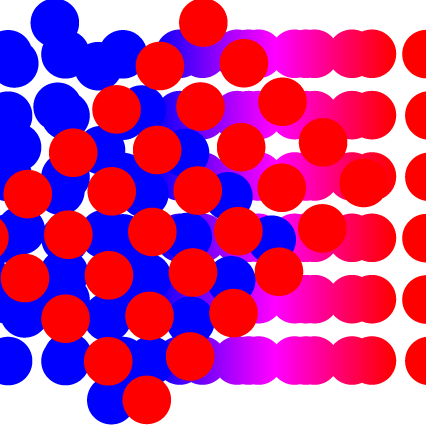Veranstaltungen
Vergangene Termine
-
 Führung durch das Archiv der Forschungsstelle Osteuropa
Führung durch das Archiv der Forschungsstelle OsteuropaDie Bibliothek befindet sich im 2. Stock.
-
 Concepts of Contradiction II
Concepts of Contradiction IIAs members of the RTG Contradiction Studies we all work in the field of or with contradictions. But what does this concept mean? What does it mean to work with contradiction(s) as a concept, method or tool? How can we come together using contradiction(s)? In two sessions we invite the members of the RTG to discuss their understandings of contradiction(s). We want to enhance finding partners for collaboration who think in similar ways and think about interdisciplinarity as translation – how to translate?
-
 Widersprüche der Erinnerungskultur. Die Realität der postmigrantischen Gesellschaft anerkennen?
Widersprüche der Erinnerungskultur. Die Realität der postmigrantischen Gesellschaft anerkennen?Die deutsche Gesellschaft ist stark von Migrationsbewegungen und dadurch von einer Vielstimmigkeit an Vergangenheits- und Erinnerungsnarrativen geprägt und die hier lebenden Menschen stützen ihre Identitäten auf unterschiedliche kulturelle Praktiken des Erinnerns. Das sog. Kollektive Gedächtnis einer ganzen Gesellschaft ist also von jeher ein von Widersprüchen gekennzeichnetes Konstrukt, das zwar den Anschein einer kohärenten Entwicklung, ähnlich einer Biografie, zu erwecken versucht, diesem aber nie wirklich gerecht werden kann. Daher muss, um Widersprüche und die daraus eventuell resultierende Konflikt so gering wie möglich zu halten, der Inhalt eines jeden kollektiven Gedächtnisses gruppiert, sortiert und priorisiert werden.
Eine dieser in Deutschland omnipräsenten Widerspruchskonstellationen ist die Erinnerung an die Shoah, die zwischen ritualisierten „Nie Wieder“ und der Forderung nach einem „Schlussstrich“ und zwischen Aushandlungen von Schuld und Versöhnung zwar immer wieder als Musterbeispiel der Aufarbeitung genannt, aber auch mindestens genauso oft kritisiert wird.
So erklärte der Publizist und Lyriker Max Czollek die deutsche Erinnerungskultur kürzlich zu einem „Versöhnungstheater“, das zwei Rollen vorsieht: Die Täter*innen, denen vergeben wird und die Opfer, die zu vergeben haben. Die Realität der postmigrantischen Gesellschaft bringt dieses einstudierte deutsche Schauspiel jedoch durcheinander, denn längst umfasst die Gesellschaft vielschichtige Perspektiven und Biographien, die sich nicht in dieses dichotome Feld einsortieren lassen. Daher wollen wir bei dieser Veranstaltung darüber sprechen, inwiefern das Versöhnungstheater darauf abzielt, die Widersprüche der postnazisitischen Gesellschaft aufzulösen und gleichzeitig an der Realität der postmigrantischen Gesellschaft scheitert. Was das für die deutsche Erinnerungskultur in der Praxis bedeutet und welche Herausforderungen aber auch Chancen das mit sich bringt, das wollen wir diskutieren.
-
 Contradictions Between Logic and Politics
Contradictions Between Logic and Politics
-
 On Soft Authoritarianism as Contradictory Practice
On Soft Authoritarianism as Contradictory PracticeResearch Group Soft Authoritarianism (WoC, U Bremen)
-
 Concepts of Contradiction I
Concepts of Contradiction IAs members of the RTG Contradiction Studies we all work in the field of or with contradictions. But what does this concept mean? What does it mean to work with contradiction(s) as a concept, method or tool? How can we come together using contradiction(s)? In two sessions we invite the members of the RTG to discuss their understandings of contradiction(s). We want to enhance finding partners for collaboration who think in similar ways and think about interdisciplinarity as translation – how to translate?
-
 Religion glokal. Religiöse Diskurse im Spannungsfeld von Globalität und Lokalität
Religion glokal. Religiöse Diskurse im Spannungsfeld von Globalität und LokalitätKickoff-Workshop des WoC-Labs „Religion glokal“ Eva Arnaszus | GRK Contradiction StudiesDr. Ulrich HarlassLara LindhorstRosa Lütge | GRK Contradiction StudiesProf. Yan Suarsana | GRK Contradiction StudiesDr. Thorsten Wettich
-
 Globale Ummah? – Zugehörigkeit und Grenzziehungen in muslimischen Online-Magazinen
Globale Ummah? – Zugehörigkeit und Grenzziehungen in muslimischen Online-MagazinenIm Rahmen des Kickoff-Workshop des WoC-Labs „Religion glokal“
-
 Romuvas Kampf um die rechtliche Anerkennung als Religion im unabhängigen Litauen
Romuvas Kampf um die rechtliche Anerkennung als Religion im unabhängigen LitauenIm Rahmen des Kickoff-Workshop des WoC-Labs „Religion glokal“
-
 Globale Pampa – Wie das Grabtuch Christi ins Taubertal kam
Globale Pampa – Wie das Grabtuch Christi ins Taubertal kamIm Rahmen des Kickoff-Workshop des WoC-Labs „Religion glokal“